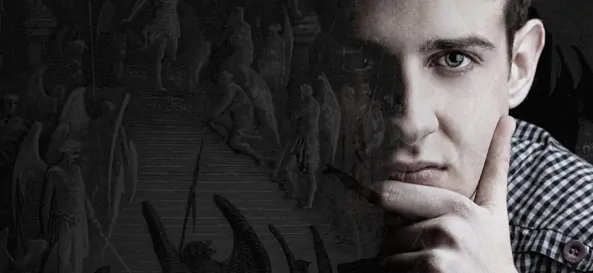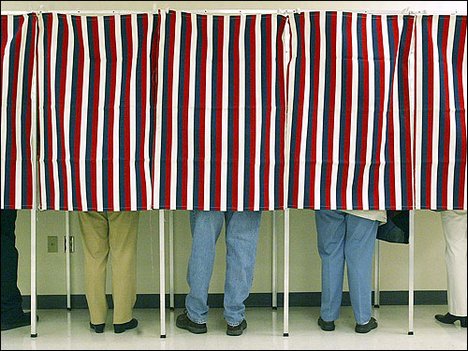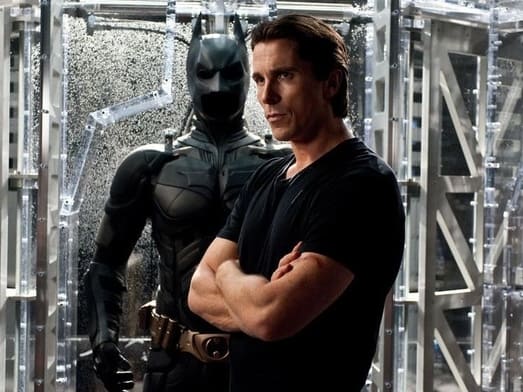
What if we made the daylight permanent? Abolish the night, wipe away that inconvenient darkness?
It sounds strange at first. But you have to admit, there’s some sense to getting rid of those pesky nighttime hours. No one will disagree that light is indispensable to life. And what’s wrong with having more of a good thing? Without light, we can’t see what’s in front of us. Matter loses its distinctive shape. Objects blur into one another. We get stuck stumbling blindly, stubbing our toes or stepping on our pets’ tails. Likewise, so many of the metaphors and clichés we use in daily communication ascribe positive connotations to light (a sunny attitude or a bright student), while darkness gets short shrift (a gloomy personality or murky writing).
We can even support this position with Scripture. Just consider the very first words God utters in the Bible’s opening chapter: “Let there be light!” If it’s so paramount, why would we want anything else? Why should we be plunged into darkness every time the earth spins around on its axis? We need light to survive, so let’s keep it light all the time!
Reaffirming doubt
As you can see, that’s a ridiculous argument. Without the night’s darkness, we’d all be insomniacs, trudging around in a sleepless stupor. But if we look carefully at the structure of our faith communities, we’ll be surprised to find the same logic at work. Our worship services, sermons, Bible studies and Christian bookstore products—from music, to movies, to the Prayer of Jabez coffee mugs—seem dedicated to duplicating Joshua 10:12, where God made the sun stand still for the Israelite army. Rather than integrating a balance of darkness and light, the light has become omnipresent in our faith lives. Certainty and affirmation are everywhere.
Doubt, ambiguity and all the unanswerable questions we’re afraid to ask are left lurking in corners like shadows on a cloudless summer day.
At first this may seem acceptable, even desirable. “Of course,” we immediately respond. “Everyone has their doubts from time to time, but why dwell on them? Why waste time acknowledging them? After all, that time could be spent strengthening our faith by reaffirming what we already profess to believe!”
That’s all very well. But we know from experience that any thought or feeling that goes unacknowledged or suppressed can easily turn sour. And when we demonize doubt as nothing but an enemy to fear, we mystify and complicate an experience that will always remain with us as long as we commit ourselves to any kind of faith. Just like the society that tries to abolish night, a life without doubt might appear to shine more radiantly, but something will always seem wrong. Something will always lurk in the shadows.
In Dynamics of Faith, Paul Tillich discusses the insecurity and uncertainty that will always remain where authentic faith is present. He concludes that “the doubt which is implied in faith accepts this insecurity and takes it into itself in an act of courage.” In other words, faith is defined by the very commitment to that which remains uncertain. As the writer of Hebrews asserts, “We walk by faith, not by sight,” which implicitly contrasts the clarity of ordinary knowledge with the opacity entailed in the leap of faith.
We could say, then, that doubt is just as integral to faith as night is a constituent part of each day. Therefore, when we participate in a life of faith, we must have the courage to accept both faith and doubt—day and night—because we cannot have one without the other.
Unfortunately, doubt is hard. In many cases, it’s much more difficult than faith. It’s natural for us to want to be told that everything is OK, that God has a grand master plan for everything—even for the senseless suffering we see around the world—and that the doctrines we inherited from our parents or our pastors are the divinely inspired, inerrant truths of the universe—a universe that grows harder for our finite minds to understand by the minute. There’s an entire multibillion dollar industry committed to reminding us that the light triumphs over the darkness.
And don’t misunderstand what I’m saying. There’s nothing wrong with light! Without light, nothing lives. Nevertheless, there’s nothing healthy about filling a room with an incandescent glare from sunset to sunrise day after day, week after week. And for many of us—especially my generation of restless twentysomethings—it’s getting harder to hide the bags that are forming under our eyes, bags that betray the insomnia that grew out of our fear of turning off the lights and being at peace with our doubts for a few hours a night.
When was the last time a celebrity preacher published a devotional based on Ecclesiastes? If he or she did, would it still be branded with the “inspirational” marketing tag? How many mainstream worship artists would dare write a song that gives voice to the anguish we feel when we wonder if, by some horrible accident, we’ve gotten it all wrong?
I’m not suggesting we grant doubt some special privilege, and I certainly don’t advocate celebrating the kind of doubt that merely cloaks nihilistic despair or cynicism. But if faith truly is a leap, as so many have depicted it, I’m not so sure it should always feel as comfortable and reassuring as we try to package it every Sunday morning at Faith Family Funland. If we fully committing ourselves to an inward passion, as Kierkegaard would put it, giving ourselves over to our ultimate concern, to paraphrase Tillich, then our leap of faith will feel tremendously insecure, requiring immeasurable courage. And just as there can be no courage without the presence of genuine fear, so can there be no faith that fails to concur with doubt.
The real problem: indifference
Our consumeristic, 21st-century minds are addicted to certainty, and for quite some time we’ve treated honest, reflective moments of doubt as though they were the devil himself trying to rob us of our faith. But I propose an alternative understanding of doubt. What if doubt is actually one of the most valuable guises in which an authentic, truth-seeking faith will express itself? What if a sign of mature, adult faith is our refusal to shrink from difficult, foundation-shaking questions?
In Revelation 3:15-17, God chides the church of Laodicea, calling it “lukewarm—neither hot nor cold” and warning that He will spit (some translations say vomit) this tepid church right out of His mouth. As a kid, I always felt uneasy when I heard this verse read in services. It struck me as a cynical scare tactic, a ploy to make sure there would be plenty of people in pews on Sunday or used to boost the bottom line on tithes and offerings at the big summer youth conference. And I admit, I still feel that way about the way this verse is often employed.
But look again at how the passage ends:
“You say, ‘I am rich; I have acquired wealth and do not need a thing.’ But you do not realize that you are wretched, pitiful, poor, blind, and naked.”
How often—in our culture, especially—does affluence lead to apathy and indifference? Now consider these qualities alongside our discussion of faith and doubt. When you experience deep, unsettling perturbations about big questions, when you sit in church and wonder if there’s really anything to this, when you pray at night and wonder what it is you’re actually doing, are you anything like the pompous, self-satisfied figure of disinterested boredom that this verse depicts as “lukewarm”? Of course not, because ardent doubt is an indicator of genuine faith. To be lukewarm is to be unconcerned, unattached, dispassionate—qualities equally alien to our experiences of faith and doubt. If you have doubts, on the other hand, it’s because you genuinely care. Thus, the opposite of faith is not doubt, but indifference.
Even at night, the moon still shines the sun’s reflection back toward us. But an artificial daylight produced by ugly, overhead florescent lighting will give us nothing but a nagging migraine. When we go outside at night and look up at the dark sky, we know that we’re dealing with a reality every bit as true as the day. But an incandescent warehouse might as well be a prison.
If it seems like the church is losing a generation, I would offer this contrast as a reminder: A genuine expression of doubt is far closer to faith than all of our attempts to prop up artificial certainty, just as the sheen from a light bulb will never be as true as the palpable darkness we experience midnight.






















